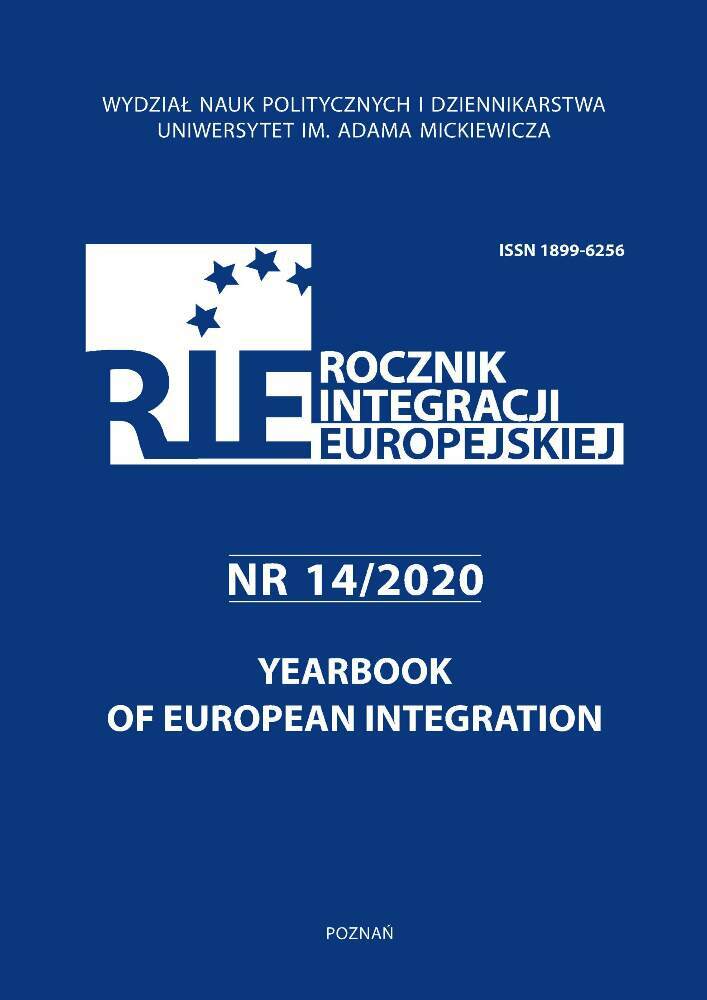Abstract
The aim of the article is to show the condition of Polish democracy on the example of two elections held in 2019 and 2020. The elections brought about a positive phenomenon for democ racy, which is an increase in voter turnout. On the other hand, negative phenomena appeared, in particular the violent political polarization within the political community. The example of the Polish elections was then confronted with the perception of democracy among Polish society in a comparative approach, i.e. against the perception of other European nations. Against this background, the assessment of Polish democracy by Poles is exceptionally positive. Later in the article, an attempt was made to consider to what extent the integration processes may be responsible for weakening democracy in the Member States, as well as for the decline in trust in democratic institutions in the west and southern part of the continent.
Funding
Publication financed under the program of the Minister of Science and Higher Education under the name “DIALOG” in the years 2019–2021. Project carried out by the Department of Law and Institutions of the European Union, Faculty of Political Science and International Studies, University of Warsaw.
References
Cappelletti M., Secombe M., Weiler J. H. H. (eds) (1985), Integration through Law: Europe and the American Federal Experiment, De Gruyter, Berlin.
Case C-341/05 Laval, No. 87.
CBOS (2018), Stosunek Polaków i Czechów do przyjmowania uchodźców [Poles and Czechs’ attitude to receiving refugees], no. 87.
Cheneval F., Lavenex S., Schimmelfennig F. (2015), Demoicracy in the European Union: principles, institutions, policies, “Journal of European Public Policy”, vol. 22, no. 1.
Eurobarometer (2018), Survey 89.2 of the European Parliament, A Public Opinion Monitoring Study, European Parliament, June.
European Parliament (2017), Resolution of 15 November 2017 on the situation of the rule of law and democracy in Poland, 2017/2931(RSP), https://www.europarl.europa.eu/doceo/document/TA-8-2017-0442_EN.html, 27.06.2020.
Grosse T. G. (2014), Kryzys demokracji w Europie [Crisis of Democracy in Europe], “Przegląd Europejski”, no. 3.
Grosse T. G. (2015), A Potential for Revolution in Europe?, in: European Union on The Global Scene: United or Irrelevant?, ed. B. J. Góralczyk, Center for Europe, University of Warsaw, Warsaw.
Grosse T. G. (2017), Introduction, in: European Union Policies at a Time of Crisis, ed. T. G. Grosse, Scholar Publishing House, Warsaw.
Habermas J. (2017), Citizen and State Equality in a Supranational Political Community: Degressive Proportionality and the Pouvoir Constituant Mixte, “Journal of Common Market Studies”, vol. 55, no. 2.
Hooghe L., Marks G. (2009), A Postfunctionalist Theory of European Integration: From Permissive Consensus to Constraining Dissensus, “British Journal of Political Science”, vol. 39, no. 1.
Hunter J. D. (1992), Culture Wars, Basic Books, New York.
Hutter S., Grande E., Kresi H. (eds.) (2016), Politicising Europe: Integration and Mass Politics, Cambridge University Press, Cambridge.
IQS (2018), Świat Młodych 5, IQS Sp. z o.o., Warsaw.
Malecki M. (2012), Do ECJ judges all speak with the same voice? Evidence of divergent preferences from the judgments of chambers, “Journal of European Public Policy”, vol. 19, no. 1.
Nicolaïdis K. (2013), European Demoicracy and Its Crisis, “Journal of Common Market Studies”, vol. 51, no. 2.
Pew Research Center (2019), European Public Opinion Three Decades After the Fall of Communism, October 15, Washington, DC.
Polish National Electoral Commission (2019), https://pkw.gov.pl/853_Wybory_do_Sejmu_i_Senatu_w_2019_r, 27.10.2019.
Risse T., Kleine M. (2007), Assessing the Legitimacy of the EU’s Treaty Revision Methods, “Journal of Common Market Studies”, vol. 45, no. 1.
Scharpf F. W. (1999), Governing in Europe: Effective and Democratic?, Oxford University Press, Oxford–New York.
Scharpf F. W. (2017), De-constitutionalisation and majority rule: A democratic Vision for Europe, “European Law Journal”, vol. 23, no. 5.
Schmidt V. A. (2004), The European Union: Democratic Legitimacy in a Regional State?, “Journal of Common Market Studies”, vol. 42, no. 5.
Schmidt V. A. (2006), Democracy in Europe. The EU and National Polities, Oxford University Press, Oxford–New York.
Weiss M., Blauberger M. (2016), Judicial Law-Making and Opportunistic Enforcement: Explaining the EU’s Challenge of National Defence Offsets, “Journal of Common Market Studies”, vol. 54, no. 2.
Wyborcza.pl (2019), Politolog: Platforma jest w przededniu poszukiwań nowych liderów, bo reputacja przywódcy została mocno nadszarpnięta, rozmowa z prof. Andrzej Antoszewskim [Political scientist: The Platform is on the eve of looking for new leaders, because the reputation of the leader has been severely tarnished, interview with prof. Andrzej Antoszewski], October 15, https://wroclaw.wyborcza.pl/wroclaw/7,35771,25308998,wybory-parlamentarne-2019-politolog-platforma-jest-w.html?disableRedirects=true, 27.06.2020.

